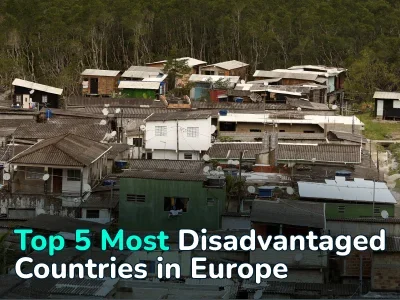
Since January 2021, the rules of entry in a number of countries have been greatly tightened
On the New Year eve, the epidemiological situation in a number of countries around the world has seriously worsened. For this reason, the states, trying to reduce the spread of coronavirus, began to impose rigid restrictions. More information about the restrictions was provided by ATOP.
The United Kingdom
All citizens arriving in the country by any means of transport must have a negative PCR test taken no earlier than 72 hours before entry. The certificate must be presented before departure. If there is no certificate, air passengers may not be allowed on board. Travellers will also need a certificate with a negative test on arrival — it must be shown at border control. The absence of this document leads to a fine of 500 pounds.
The presence of a certificate does not exempt those staying in England from a 10-days’ quarantine. It is possible to reduce the quarantine period in 5 days, provided that the retest is taken and its results are negative.
Germany
The local government has tightened the rules of entry for citizens from countries at risk (Russia is also included in the list). The passengers are required to present a negative PCR test, taken no earlier than 48 hours in advance, or they can get tested on arrival in Germany. Regardless of the results of testing, those entering must go into quarantine for a period of 10 days. Its duration can be reduced after 5 days if you get retested.
For those entering Germany, there is another mandatory requirement — registration on the portal www.einreiseanmeldung.de. On this portal, you need to fill in your trip details and your contact information, which will be forwarded to the health authority.
Greece
The country’s authorities have doubled the quarantine period. Instead of 3 days, the isolation period will last 7 days until January 21. The place of the quarantine is stated in a special PLF form. In addition, visitors are required to provide a certificate with a negative test, the results of which were received no earlier than 72 hours before entry.
Finland
The current restrictions for a number of countries that fall under the «red zone» (including Russia) were extended until February 9. The existing bans in Finland have been introduced since mid-March last year. Since then, the restrictions have been repeatedly extended.
Estonia
Those entering the country from January 15 must have a negative PCR test taken 72 hours before arrival. The certificate is not required only for transit passengers and persons living on the border with Finland and Latvia, who arrive in Estonia on a daily basis for work.
Australia
When entering the country, travellers need to present a certificate with a negative test for COVID that was taken 72 hours before arrival. Now it is also mandatory to wear masks during the entire flight. This requirement applies not only to the passengers but also to each member of the aircrew.
South Korea
Those arriving in the country must have a PCR test with negative results taken no earlier than 48 hours before arrival. The travellers are also expected to take a retest when in South Korea. Regardless of results, citizenship and length of stay, those entering the country must go into quarantine for 14 days.
Latin America
Along with European countries, states of Latin America have also tightened their entry rules:
- in Cuba, from January 10, it became mandatory for foreigners to have a certificate with a PCR test;
- The same certificate is required when entering Chile. Additionally, those entering must go into a 10-days’ quarantine;
- In Peru, the isolation period for visitors lasts 14 days. Travellers are still required to provide a test for Covid with negative results taken no earlier than 72 hours before arrival;
- the rules are similar in Brazil, which hadn’t imposed any restrictions until July last year. Now a PCR test obtained within the last 72 hours is required from the travellers;
- In Colombia, the certificate is valid for 96 hours. Without a negative test, those who arrive in the country will have to go into quarantine for a period of 14 days.






















